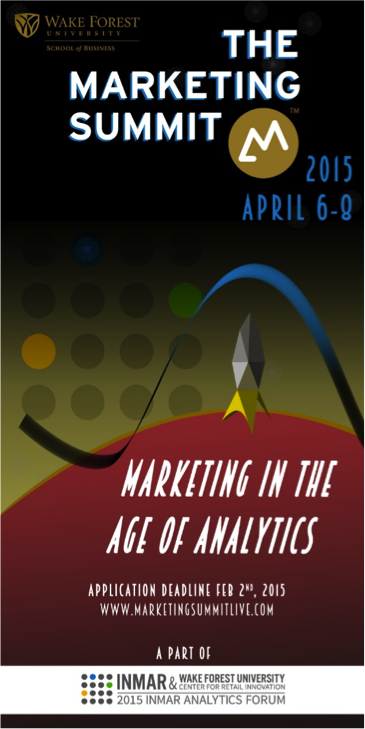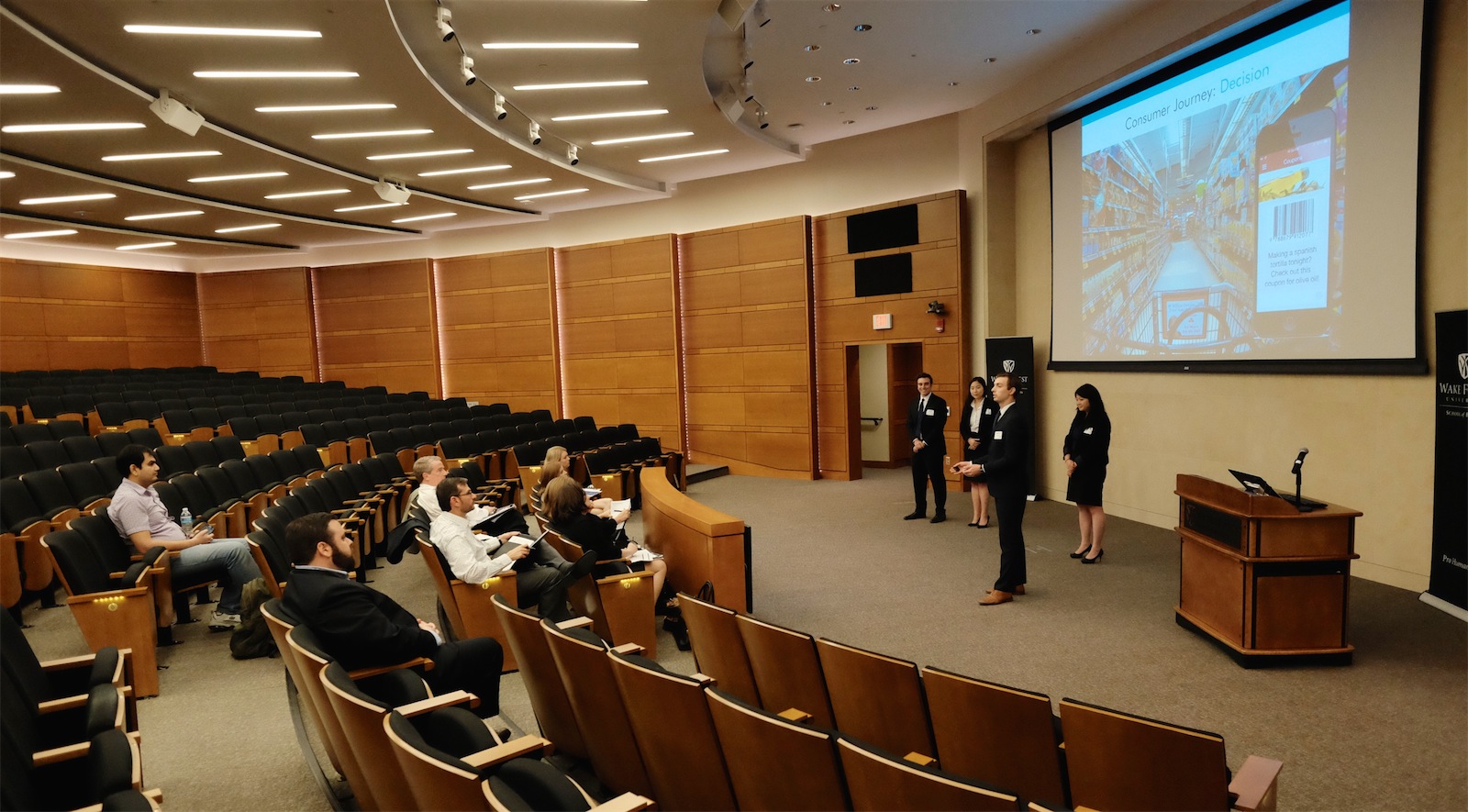5 things I learned as a judge at WFU’s Marketing Analytics Summit
A 3-day symposium with executives and thought leaders discussing marketing in a Big Data world
Held every year at Wake Forest University School of Business, the Marketing Analytics Summit is a big 3-day symposium that brings together executives and thought leaders from a wide range of industries. The mission: to discuss the ramifications of Big Data and how it’s changing the way consumers shop and manufacturers market.
When I was asked by the Center for Retail Innovation (CRI), the Summit’s hosting organization, to help judge the student competition, I was excited to have a front row seat. The competing students from top universities across the country were critiqued on how well they could take the supplied data, use conceptual knowledge gained in the classroom, and propose a real-world solution to a real-world case. With $45,000 in prize money at stake, these young business students were clearly in it to win it.

1. Judging is hard work.
I had to evaluate six teams as they presented their case solutions. The challenge, in a nutshell, was how to encourage more shoppers to use their mobile device when shopping in grocery or pharmacy. The teams had to analyze complex data sets around shopper behavior and industry trends – then propose viable ways to enhance the in-store shopping experience using mobile technology. As a judge, I had to grade their solutions on value to consumer, utility to retailer, and habituation.
2. We use mobile technology everywhere EXCEPT in the grocery store.
Sure, mobile devices now play a huge role in the interactions between consumers and businesses, and the smart phone has become an indispensable part of our lives – except when we enter our local grocery store or pharmacy. In these sectors, we are using our mobile devices at a far lower rate (5%) than we do in other commercial activities (travel, banking, etc.).
3. Big Data has BIG implications for marketers.
Given the ever-increasing volume and velocity of data, forward-thinking organizations have learned how to support a more accurate, timely level of decision making by capturing and analyzing huge data sets. Having big data doesn’t automatically lead to better marketing – but it does create the potential for higher levels of customer engagement, retention, and loyalty. Big data can deliver insight into not just who your customers are, but where they are, what they want, how they want to be contacted, and what keeps them coming back again and again.
4. Sometimes high tech solutions need a low tech idea.
Take the selfie-stick, for example. Our arms aren’t long enough to take good pictures of ourselves. When we’re trying to shop for groceries, steer a cart, and possibly keep a child or two in line, our hands are full. So it doesn’t matter how relevant the in-store mobile experience might be, shoppers aren’t going adopt a habit that hinders their ability to get in and get out. Several of the teams we evaluated thought downstream to the actual execution of a better grocery mobile strategy, and proposed mounting phone-holders on the handlebars of a shopping cart for a handsfree experience: inexpensive to manufacture and install, but with a huge upside.
5. The Center for Retail Innovation is helping shape the future of retail.
Executive Director Roger Beahm and his team are doing a fantastic job in building a powerful alliance of manufacturers, retailers and other partners who all share the Center’s mission of driving new trends and ideas in retail. The function of the marketing professional continues to evolve rapidly in the knowledge economy, and after spending a day on the Wake Forest campus, I am pleased to see that these future business leaders will understand the full potential of both disruptive digital technologies and the consumers who use them.


